Swiss put their professional skills to the test
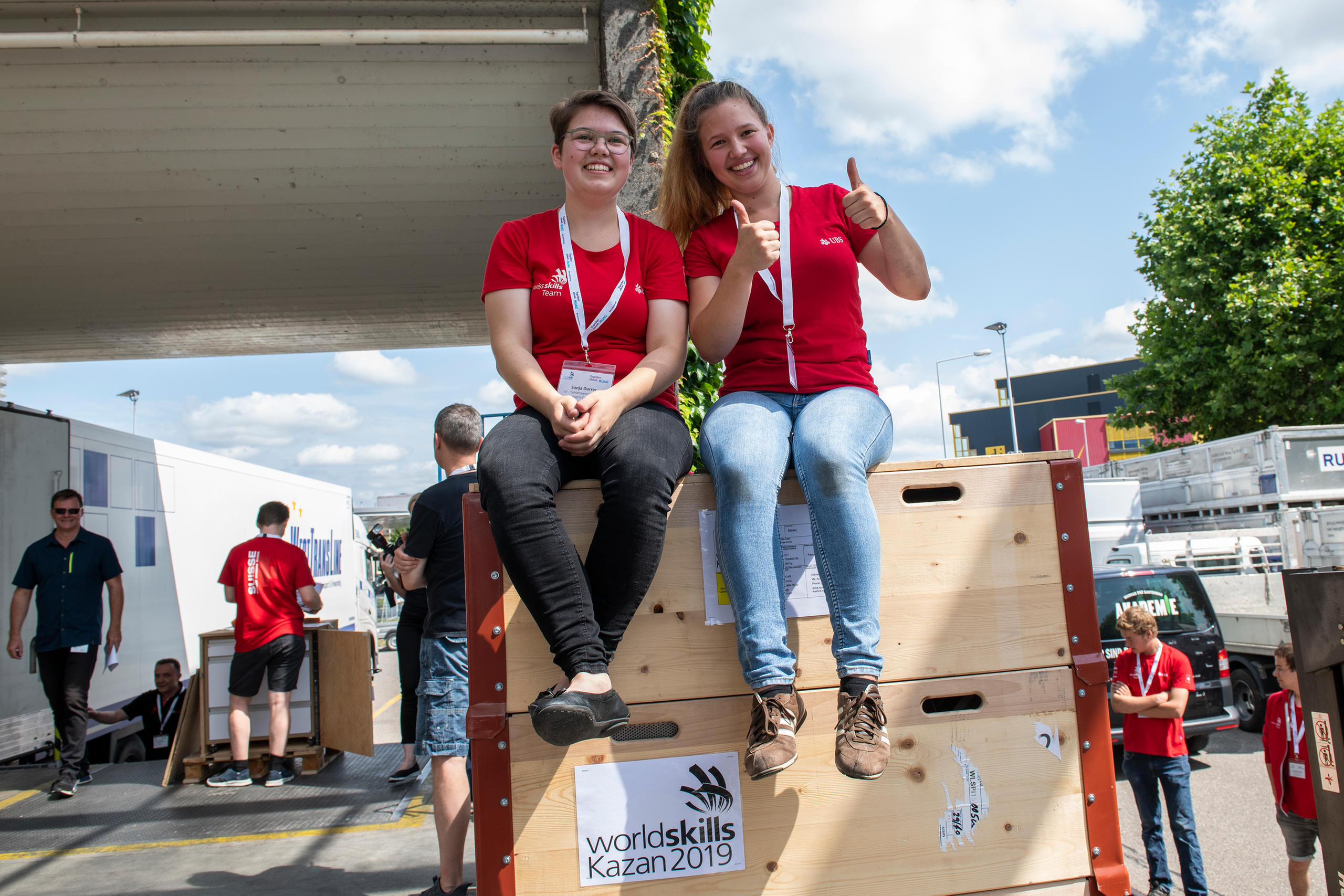
How do you prepare for an international vocational skills competition? swissinfo.ch met members of the Swiss team to find out, as they geared up for WorldSkills, a huge meet being held in Russia.
It’s a warm Saturday at the end of July and the members of the Swiss team are gathering on the grounds of defence company Ruag in Emmen, near Lucerne. It’s their last meeting ahead of WorldSkillsExternal link and the opportunity to load up the material needed for the competition.
WorldSkills is held every two years at a different location. The aim: to find the best young person in skills from a wide range of industries – from hairdressing to joinery, to electronics and carpentry. This year’s competition, which runs from August 22-27, is being held in Kazan, in western Russia. Over 1,500 participants from 60 nations are attending.
The Swiss team is made up of 41 young people, all under the age of 22, competing in 40 skills. The stakes are high: at the last WorldSkills in Abu Dhabi in 2017, the team celebrated their best performance ever and came second after China.

More
Record gold medal haul for Swiss professionals
The young people are welcomed in the Ruag canteen (it is one of the sponsors). A poster on the wall attests to the firm’s own success: four medals in last year’s SwissSkills competition in Bern, the competition to find the elite of Swiss apprentices. Many SwissSkills winners are on the national team (which is also called SwissSkills).
+ Read more about the SwissSkills competition here
Sea of red and black
Everyone in the canteen is sporting a team t-shirt: red for the young people and black for 43 experts, who have helped train their charges in their respective skills and will also be going to Kazan.
First up, explains Ueli Müller, secretary general of the SwissSkills foundationExternal link, which organises the Swiss participation – and also sports a black t-shirt – is the loading up of the material and equipment.
swissinfo.ch accompanies the first group to the loading area, where crates are being prepared for the around 3,500km-journey by lorry to Kazan. The material is expected to take a week to get there.
The cabinet maker
Among those getting her equipment ready is 19-year-old Samanta KämpfExternal link, from Thurgau, who is representing Switzerland in cabinet makingExternal link. She is in the last year of her apprenticeship at HerzogExternal link, a kitchen company.
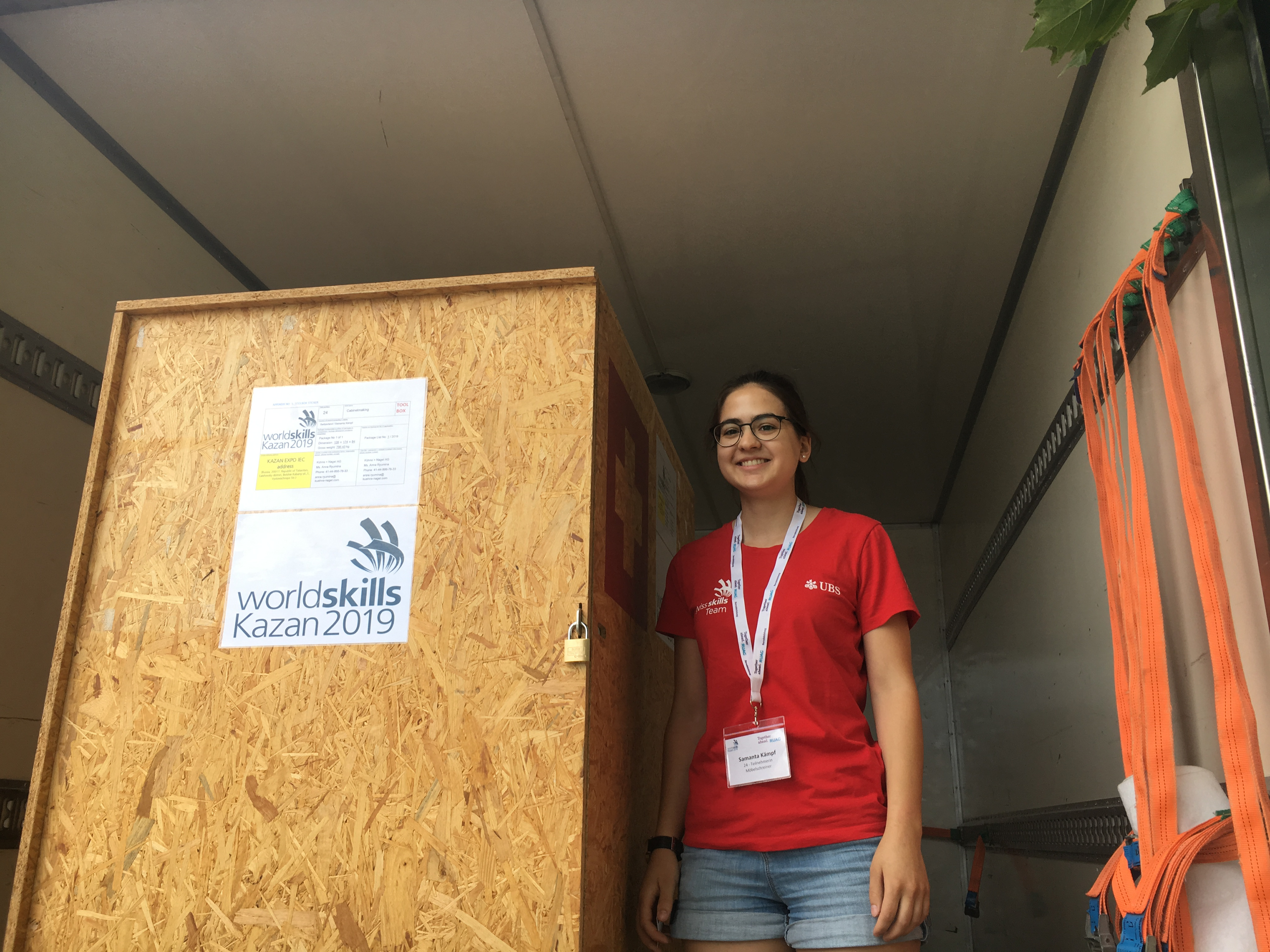
She explains that she will have 22 hours to make a piece of furniture to plan in the competition. “I am really looking forward to it,” she told swissinfo.ch. “It’ll be a unique experience and one I’ll never forget.”
Kämpf has been training exclusively for the competition, with the help of her expert, since March. “I hope that I can repeat the performance that I’ve achieved in training in Kazan and hopefully get a good place in the competition,” she said.
The cabinet maker is one of 12 women on the Swiss team and has made inroads in what is usually considered a more male domain. Kämpf hopes that her story gives other young women encouragement to pursue this kind of profession.
Most expensive equipment
The most expensive equipment going to Kazan is accompanying 21-year-old Markus HintermannExternal link, who is competing in the CNC millingExternal link category. A Computer Numeric Control miller shapes metals and other solid materials using a computer-controlled milling machine. These can be used for making parts for cars or smart phones, for example.
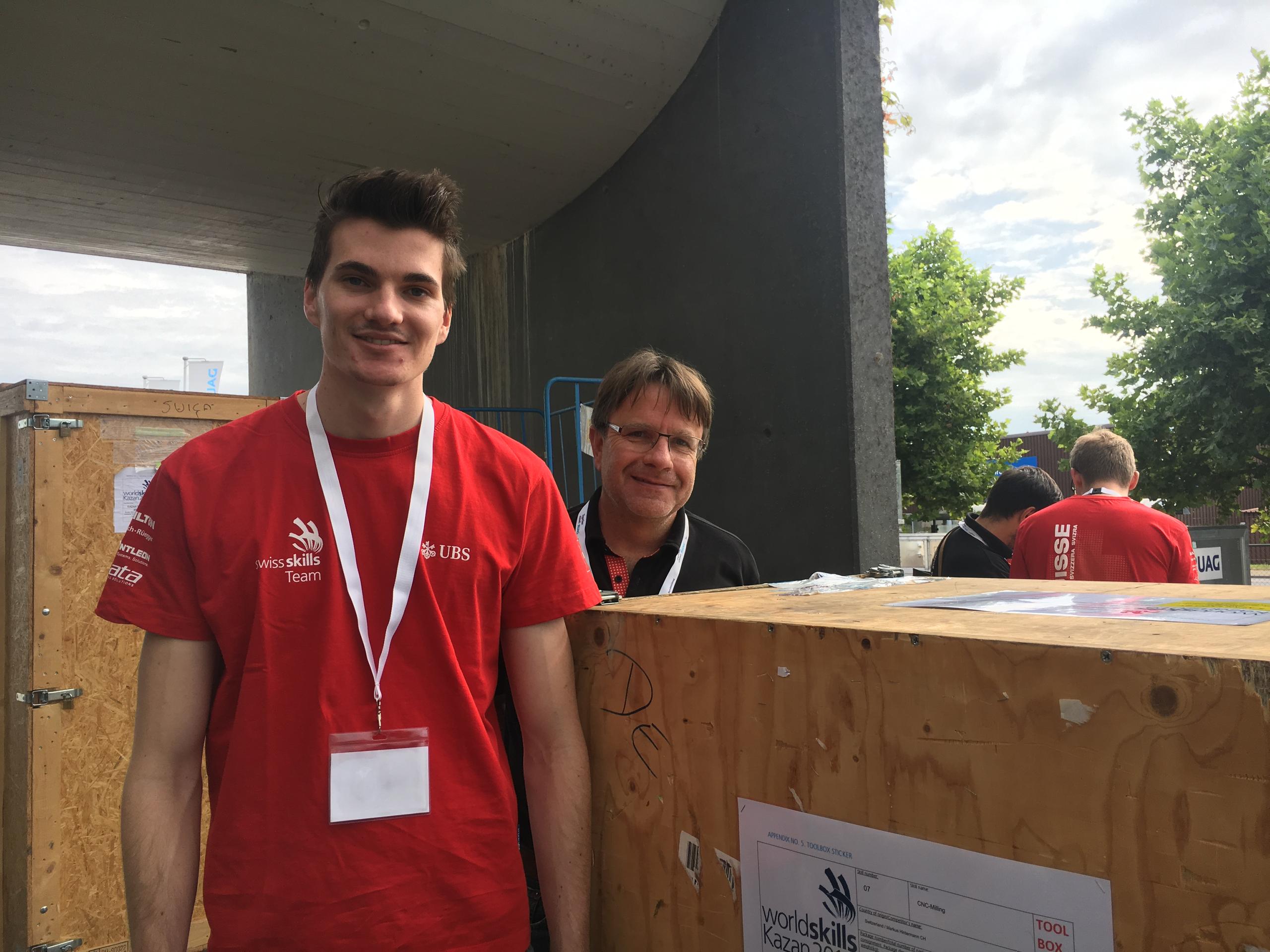
It’s not always easy to explain this skill, Graubünden-born Hintermann admits with a smile, as he waits for his box to be loaded. In the competition, he will be programming from a technical design and then milling it with the CNC machine. “You really have to work very precisely,” Hintermann explained.
The SwissSkills national competition gold medal winner, who works for Hamilton BonduzExternal link in Chur, hopes he can perform at his best in Kazan. He, too, has been training intensively. “I feel ready,” he says.
Goals and ambassadors
Overseeing the loading is SwissSkills secretary general MüllerExternal link. “We have almost ten tons of material, 35 boxes, with a total value of CHF725,000 ($732,000),” Müller told swissinfo.ch, after he had finished checking the first group.
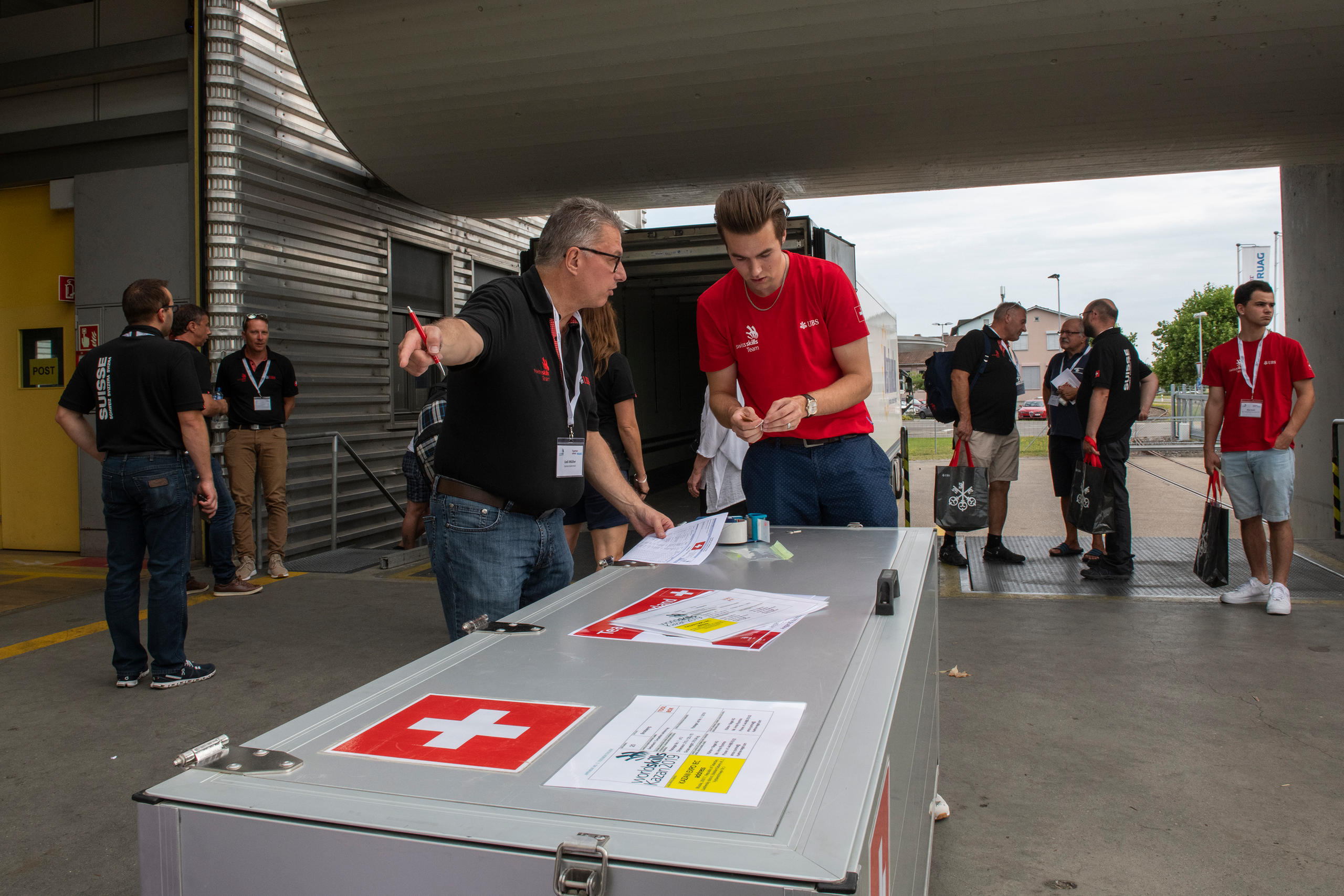
He is hoping for a good result in Kazan. “In the last years, we were always among the top three internationally and that’s what we would like to repeat and, of course, we want every team member to be able to perform the best they can.”
The team has been training intensively over the past six months or so. “It’s like for elite athletes: you have the skills training, but we also do media training, mental health training, team building and sport. They have to be in good physical condition as it’s a competition, like an elite sport. It’s important that they are well prepared,” Müller explained.
Vocational and educational training (VET) is, of course, a Swiss calling card.
+ Read here how the Swiss system is seen as a model for others
The dual-track system involves apprentices spending 1-2 days in a vocational school and the rest training in a company. It’s a route chosen by two-thirds of school leavers.
“We tell our team that they are ambassadors of our VET system,” Müller said. “And we are very proud of this.”
WorldSkills
The Swiss have been competing at WorldSkills since the first professional world championships were launched in 1953 in Spain.
Participants have to be under 22 years old and have to have won a national or regional competition. The Swiss team is coordinated by the SwissSkills foundation which holds the Swiss championships in various skills and organises participation in WorldSkills.
The 45th WorldSkills in Kazan runs from August 22-27. swissinfo.ch will report back with the results when the competition ends.
Want to see more about how young Swiss prepared for the competition? This video was originally published on our InstagramExternal link channel.

In compliance with the JTI standards
More: SWI swissinfo.ch certified by the Journalism Trust Initiative









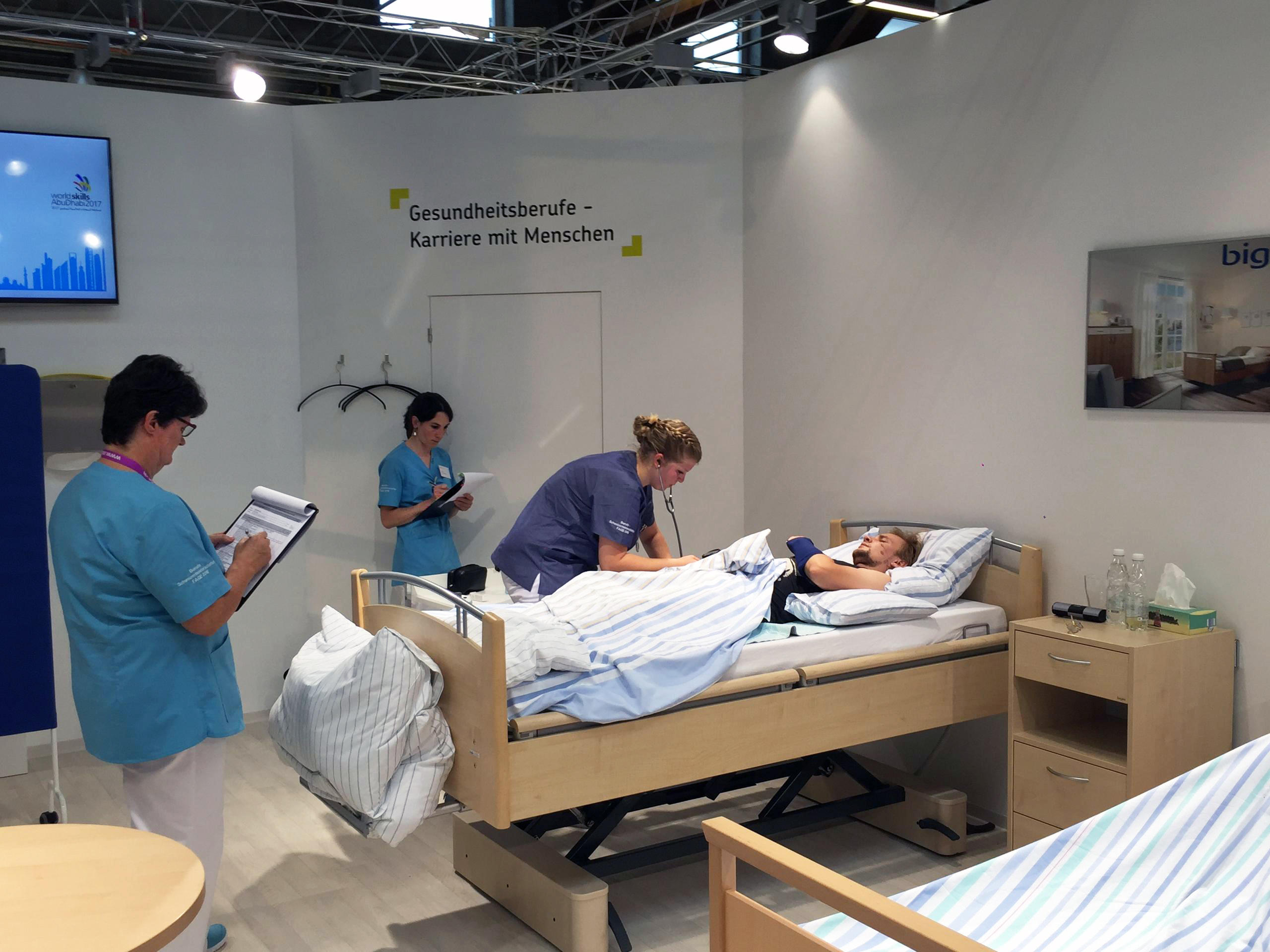
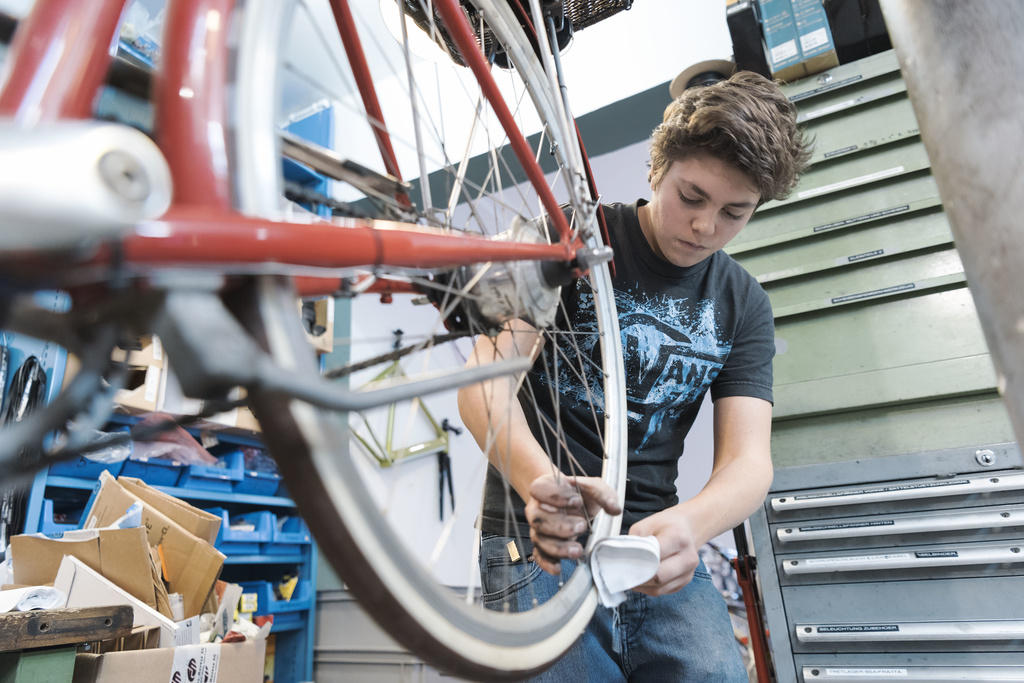
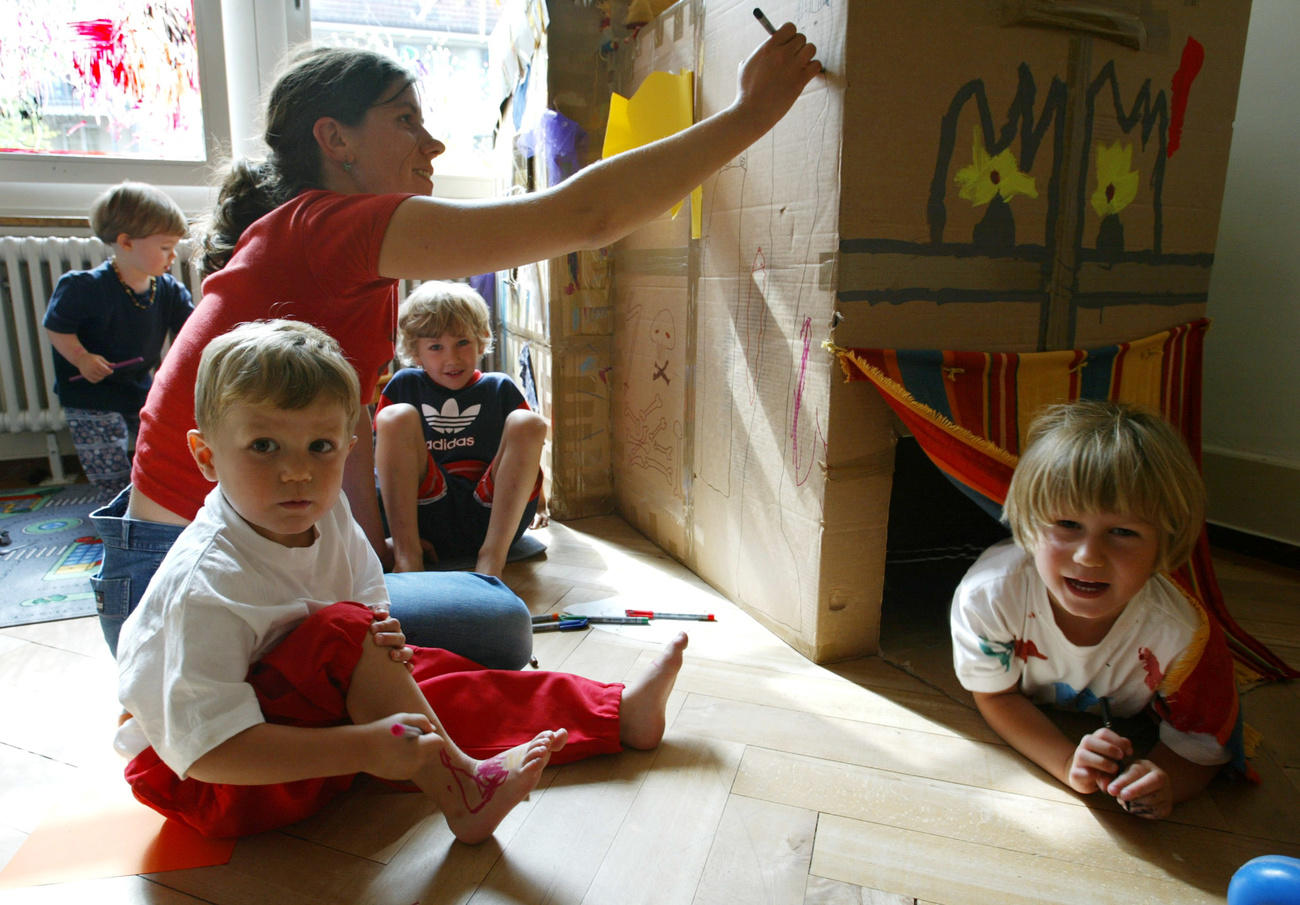

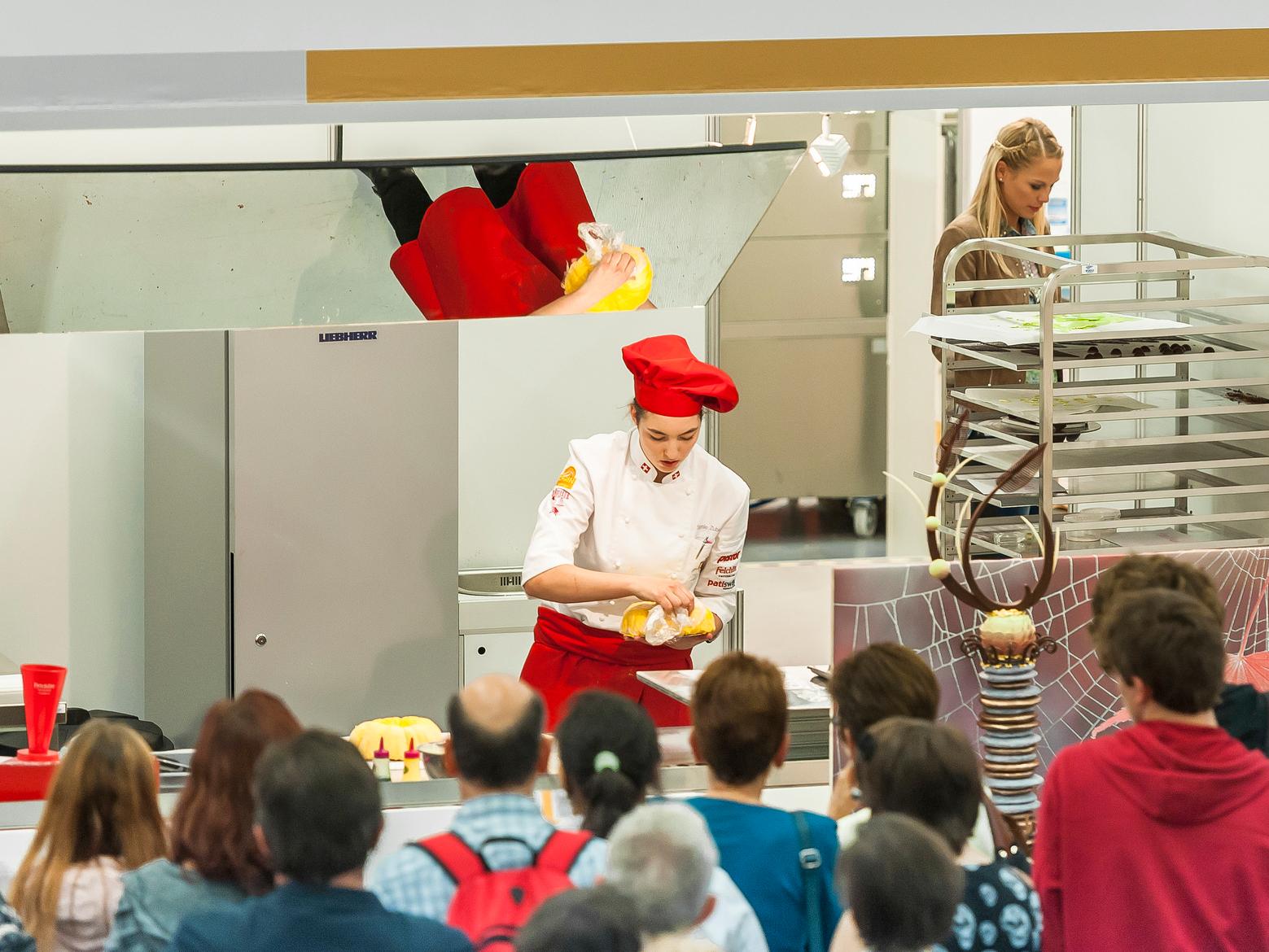
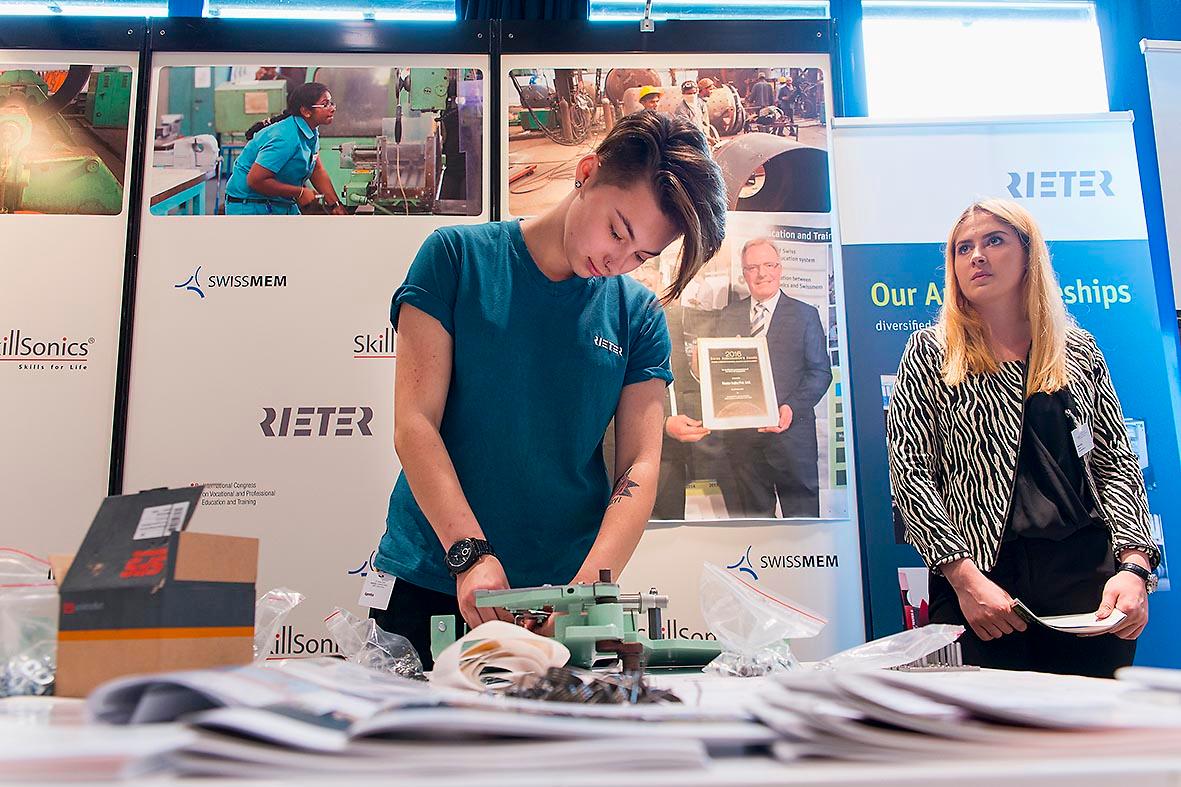
You can find an overview of ongoing debates with our journalists here . Please join us!
If you want to start a conversation about a topic raised in this article or want to report factual errors, email us at english@swissinfo.ch.